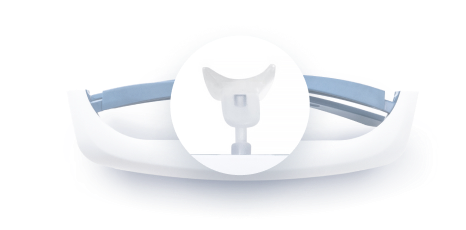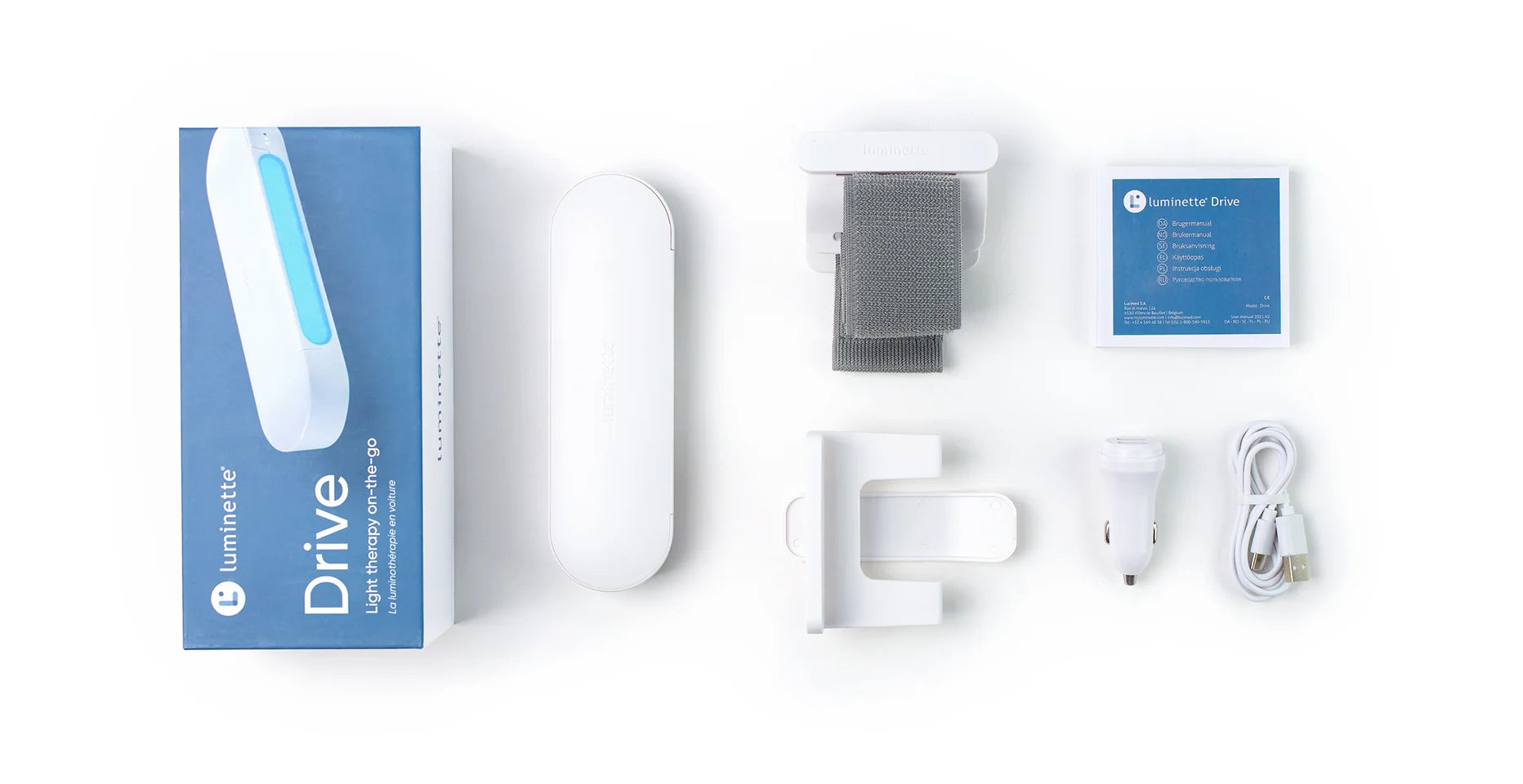The change in time can have significant health implications. This internal clock regulates the secretion of melatonin, the sleep hormone, at specific times and also plays a role in immune regulation. The transition to daylight saving time or back to standard time can lead to a decrease in immune defenses (fatigue, increased susceptibility to infections, and slow healing of injuries), disruption of appetite (hunger outside meal times, decreased or loss of appetite), and sleep disturbances (night awakenings, difficulty falling asleep, insomnia, etc.).
The body is supposed to adapt to this time change within a few days. However, that's not the case for everyone. These disruptions can manifest in various forms: insomnia, delays and advances in sleep phases, night awakenings, restless nights, and more. Lack of sleep, in turn, has numerous negative impacts on both the body and the mind, including weight gain, diabetes, cardiovascular diseases, neurodegenerative diseases, mood disorders, and mental health issues.
For individuals facing these challenges, the most frequently recommended treatment by sleep specialists is light therapy. It helps regulate body's clock and adapt them to the current environment. This method is beneficial for overall health, medically certified, eye-safe*, and represents an alternative to medication-based treatments.
Understanding the Impact of Time Changes
Every year, millions of people adjust their clocks for daylight saving time or experience time zone shifts due to travel. While these changes may seem minor, they can have a real and measurable impact on your body’s internal systems—especially sleep. Even a one-hour shift can disturb the biological processes that help you feel alert in the morning and relaxed at night. Understanding how time changes affect your body can help you take the right steps to minimize disruption and maintain healthy sleep patterns.
Common Sleep Disturbances
Time changes often lead to short-term sleep disturbances such as difficulty falling asleep, waking up too early, or experiencing fragmented, restless nights. You may also notice increased fatigue during the day, brain fog, irritability, and reduced concentration. These effects are particularly common in children, older adults, and people already struggling with sleep issues or chronic health conditions.
Short-Term vs. Long-Term Effects
In the short term, a disrupted sleep schedule can affect productivity, mood, and physical performance. Most people adjust within a few days, but for some—especially those with pre-existing sleep disorders or sensitive circadian systems—the effects can linger. In the long term, repeated circadian misalignment (such as frequent time zone travel or shift work) has been linked to more serious health risks, including cardiovascular problems, metabolic disorders, and impaired immune function. Taking action early to stabilize your rhythm is key to avoiding these long-lasting effects.
What Really Happens During Sleep—How Your Body and Brain Recharge
While you sleep, your body enters distinct stages—from light sleep to deep restorative phases and REM (rapid eye movement). Each stage serves a unique purpose:
-
In the early stages, your heart rate and body temperature drop, muscles relax, and your brain begins to clear the clutter from the day.
-
During deep sleep, tissue growth and repair occur, immune defenses are strengthened, and your body restores physical energy.
-
In REM sleep, your brain becomes highly active, processing emotions and consolidating memories. This phase is essential for mental clarity, creativity, and emotional regulation.
Far from being inactive, sleep is when your body performs many of its most essential maintenance functions—and missing out can disrupt all of them.
The Benefits of Consistent, High-Quality Sleep
Getting regular, restful sleep isn’t just about feeling less tired—it actively improves your health and quality of life. Here are some of the key benefits:
Improved cognitive function: Sleep boosts memory, learning, focus, and decision-making.
Stronger immune system: Adequate rest helps your body fight off illness and recover faster.
Balanced metabolism: Good sleep helps regulate hormones related to hunger and blood sugar, reducing the risk of weight gain and diabetes.
Healthy skin and aging: Sleep supports collagen production and cellular repair, helping you look and feel younger.
Consistent sleep isn’t just restorative—it’s preventive. It protects your long-term health in ways that no supplement or quick fix can match.
The Consequences of Chronic Sleep Deprivation
Not getting enough sleep doesn’t just make you feel groggy—it has measurable effects on your body and mind. Chronic sleep deprivation can lead to:
-
Poor concentration, memory issues, and slower reaction times
-
Weakened immune response, making you more vulnerable to illness
-
Increased risk of chronic diseases, such as heart disease, diabetes, and obesity
-
Hormonal imbalances, especially related to appetite (ghrelin and leptin)
-
Reduced physical performance and delayed recovery
Even short-term sleep loss affects your performance, mood, and appearance. Long-term, it becomes a serious health risk—which is why improving sleep should be a top wellness priority.

How Light Affects Your Sleep Cycle
Light plays a critical role in regulating your body’s internal clock. This natural cycle determines when you feel alert and when you feel sleepy, and it’s heavily influenced by the timing, intensity, and type of light you’re exposed to throughout the day.
Understanding Your Body's Clock
The body's clock is a 24-hour internal cycle that helps control your sleep-wake cycle. It’s influenced by external cues, the most important of which is light. In the morning, exposure to natural or artificial light signals your brain to stop producing melatonin—the hormone that promotes sleep—and increases cortisol to help you feel awake and energized. As the day progresses and light fades, melatonin production increases again, preparing your body for rest.
A well-aligned body's clock helps you fall asleep more easily at night and feel more refreshed in the morning. When this rhythm is disrupted—due to irregular sleep schedules, insufficient daylight, or late-night screen use—it becomes harder to maintain consistent, quality sleep.
Why Morning Light Boosts Alertness and Mood
Exposure to bright light in the early hours of the day sends a strong message to your brain that it’s time to wake up and be active. Morning light, especially blue-enriched light, helps reset your body's clock daily and has been shown to improve:
-
Mental clarity and focus
-
Energy levels throughout the day
-
Mood and emotional stability
For those struggling with low energy, using a device like Luminette light therapy glasses in the morning can effectively simulate sunlight and help the body regain its natural rhythm. Even 20–30 minutes of morning light can make a noticeable difference in how you feel throughout the day.
How Blue Light Exposure at Night Delays Sleep Onset
While blue light in the morning can be beneficial, exposure to it in the evening has the opposite effect. Blue light, which is emitted from screens (phones, tablets, computers, TVs), suppresses melatonin production and tricks your brain into thinking it’s still daytime. This delays the onset of sleep, making it harder to fall asleep and reducing overall sleep quality.
To protect your sleep, it’s recommended to:
-
Avoid screens at least one hour before bedtime
-
Use blue light filters or night mode on devices in the evening
-
Keep bedroom lighting dim and warm-toned
-
Prioritize morning light exposure to reinforce a healthy rhythm
By managing your light exposure strategically—more in the morning, less in the evening—you can significantly improve your ability to fall asleep naturally and stay asleep longer.
Supporting Better Sleep, Naturally
At this point, we’ve covered some of the most effective ways to build a healthier sleep routine—from limiting screens in the evening to aligning your schedule with your natural rhythm. But in today’s world, light exposure isn’t always easy to control. Too little morning light, especially in winter or for shift workers, can delay your internal clock and throw off your sleep cycle entirely.
That’s where light therapy becomes not just helpful, but essential.
Whether you struggle with falling asleep on time, waking up feeling foggy, or managing low energy throughout the day, using targeted light at the right moment can help gently reset your system.
Two Thoughtful Tools to Help You Sleep Better
Luminette 3—Light Therapy Glasses That Fit Your Life
Luminette 3 is a wearable light therapy device designed for people who want flexibility. Instead of sitting in front of a static light box each morning, you can go about your routine—make coffee, walk, check emails—while receiving just the right amount of morning light to stimulate wakefulness and support melatonin balance later in the evening.
It’s especially useful for:
People with irregular schedules or frequent jet lag
Those struggling with winter fatigue or delayed sleep
Anyone looking for a discreet, travel-ready solution to restore their sleep rhythm
Drive 2-in-1—A Lamp That Works With You
Prefer something for your desk or nightstand? The Drive 2-in-1 light therapy lamp offers the same clinical-grade brightness in an elegant, minimalist form. By day, it’s a 10,000-lux light source to boost focus and reset your circadian clock. By night, it switches to a warm reading light—gentle on your eyes and ideal for winding down.
A perfect option if you:
Work from home and want to support alertness and sleep naturally
Like having a dedicated spot for reading or journaling
Want a subtle way to incorporate light therapy into your daily space
Let Light Work in Your Favor
Both Luminette 2 and Drive 2-in-1 were developed to bridge science and simplicity—bringing the proven benefits of light therapy into your real life, without disrupting it. The result? Improved sleep, better mornings, and more consistent energy—starting with just 20 minutes a day.
10 Tips for Coping with the Time Change:
Prepare for the time change in the days leading up to it by gradually setting your wake-up time earlier by 10-15 minutes each day. Also, make sure to go to bed a little earlier each night.
Upon waking up, expose yourself to light. If the weather doesn't allow it, use Luminette every morning. A session of 20 to 45 minutes is sufficient. Moreover, you can continue with your activities: have breakfast, get ready, read, work on the computer, engage in gentle exercise, etc.
Get up as soon as you wake up. Sleeping in won't help you recover the needed hours of sleep. On the contrary, you'll be even more tired, and your body's clock will be further disrupted!
Limit screen time before bedtime. Opt for reading or any other calm activity.
Take a bath before going to bed. Add Epsom salt and essential oils and soak in warm water. Guaranteed relaxation!
Establish a stable routine. Your body will find its cues in a regular daily rhythm (wake-up time, bedtime, meal times, physical activities, and relaxation moments).
Adjust your diet. Avoid heavy and fatty meals and eat 2 to 3 hours before going to bed. Opt for vegetable soup, whole-grain bread, and homemade applesauce. Digestion will be easier, and falling asleep will become less challenging.
Engage in physical activity to adapt your body to the new schedule. However, avoid intense workouts in the evening. At that time of the day, prioritize activities like pilates, yoga, and gentle exercises.
Don't overdo it! If you struggle during time changes, listen to your body during the first week. Spend time with your family, listen to music, watch a series... The keyword: RELAXATION!
Limit the use of medications like sleeping pills to help you fall asleep. Consult a specialist if your sleep disorders are significant. Melatonin supplements can complement light therapy.
1. How long does it typically take to adjust to a time change?
Most people adjust within 3 to 5 days, though it can take longer for sensitive individuals.
2. What are the most common symptoms of time change sleep disruption?
Difficulty falling asleep, early waking, daytime fatigue, irritability, and poor concentration.
3. Does light therapy really help with adjusting to daylight saving time?
Yes, morning light therapy helps reset your circadian rhythm and reduce adjustment time.
4. Are there any specific foods I should avoid or consume to help with the time change?
Avoid caffeine and heavy meals late in the day; opt for foods rich in magnesium and melatonin, like bananas or almonds.
5. How can I help my children adjust to the time change?
Shift their schedule gradually over a few days and ensure consistent light exposure in the morning.
6. Is it better to adjust before or after the actual time change?
Adjusting your sleep schedule 2–3 days before the change helps ease the transition significantly.


















































 Please note
Please note



















